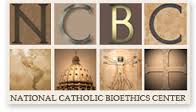Groundbreaking’ gene-editing therapy receives thumbs up from Catholic bioethicist

In an interview with “EWTN News Nightly” anchor Tracy Sabol, National Catholics Bioethics Center President Dr. Joseph Meaney discusses the first-ever therapy approved by the FDA using CRISPR, a genome editing technology. | Credit: “EWTN News Nightly”
By Peter Pinedo
CNA Newsroom, Dec 12, 2023 / 09:00 am
A new gene-editing therapy called Casgevy, which is designed to help treat patients suffering from sickle cell disease, has been endorsed by the National Catholic Bioethics Center and its president, Dr. Joseph Meaney.
Casgevy is a new gene therapy developed by Vertex Pharmaceuticals that uses CRISPR, a genome-editing technology, to modify a patient’s blood cells and reverse the problems caused by sickle cell disease.
In an interview with “EWTN News Nightly” anchorwoman Tracy Sabol, Meaney called the new therapy, which is the first of its kind to receive FDA approval, “groundbreaking” and said that from a Catholic perspective it “is a very licit therapy” that “hopefully will be effective.”
“The Church has said since Donum Vitae really that gene therapies can be acceptable as long as they’re strictly therapeutic. That is to say that gene therapy is used to treat a genetic disease,” Meaney explained.
He noted that while there “are other people out there who want to do gene therapies to do human enhancement,” such as through “germline” gene editing that targets the reproductive cells in the body to design babies with preferred traits, that is not the case with Casgevy.
“This current therapy is actually for individuals 12 years old and older and will affect a very serious disease and try to cure them,” Meaney explained.
What is Casgevy?
Casgevy is a new treatment for sickle cell disease, a blood disorder that affects approximately 100,000 Americans and is most common among African Americans, according to the FDA.
Per the FDA, the primary problem in sickle cell disease is a genetic mutation that damages the red blood cells, causing them to take on a sickle-like shape that ends up restricting blood flow and limiting oxygen delivery to the body. The result is severe pain, organ damage, life-threatening disabilities, and ultimately the possibility of death.
Because of the need for effective sickle cell treatment, the FDA expedited Casgevy’s development and gave it priority review. The therapy received FDA approval for ages 12 and up on Dec. 8.
An FDA press release said that Casgevy is the first therapy using CRISPR to be approved and that its approval signals “an innovative advancement in the field of gene therapy.”
The FDA explained in its release that Casgevy uses CRISPR technology to “cut DNA in targeted areas, enabling the ability to accurately edit (remove, add, or replace) DNA where it was cut.”
“The modified blood stem cells are transplanted back into the patient where they engraft (attach and multiply) within the bone marrow and increase the production of fetal hemoglobin (HbF), a type of hemoglobin that facilitates oxygen delivery.”
Another gene therapy, called Lyfgenia, which uses a different method to treat genes with the sickle cell disease, was also approved last week by the FDA.
In both treatments, patients must also undergo high-dose chemotherapy to allow the modified genetic cells to replace the diseased cells. According to reporting by NBC News, the use of chemotherapy as a part of the treatment for sickle cell disease can increase the risk of infertility.
According to the FDA, clinical trials for Casgevy involving adults and adolescents proved effective overall with some side effects such as low levels of platelets and white blood cells, mouth sores, and nausea.
The National Catholic Bioethics Center (NCBC), headquartered in Philadelphia, is a research organization focused on providing education and guidance from the Catholic perspective on today’s leading scientific and medical questions.
Founded in 1972, NCBC has long praised the potential of gene editing to cure serious diseases while also warning of the dangers of the technology being used to design or reengineer human persons in pursuit of eugenic goals.
Meaney said the newly FDA-approved gene treatments do not present any such moral qualms and that the primary ethical concern for these therapies is whether the benefits outweigh the costs.
In the Catholic understanding, Meaney explained, “the proportion of benefits and possible side effects” need to be examined in every therapy.
In the case of the new therapies, Meaney said they have already undergone extensive clinical trials but that they will need to continue to be studied with special attention to its long-term side effects.
“This therapy is still experimental in the sense that very few people have gone through it, and they’re still going to be studying this for many years in the future,” Meaney explained. “So, I would say that every therapy needs to be evaluated from that ethical perspective — is there a proportion between the benefits and the burdens and also between the costs?”
This type of treatment for sickle cell disease currently costs between $2 million to $3 million, though Meaney said the price will likely lessen as technology continues to advance.









